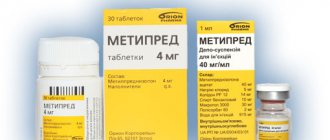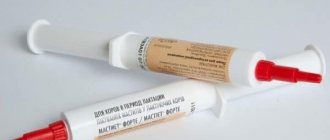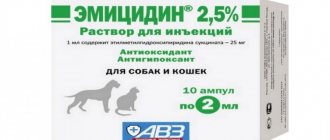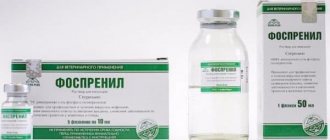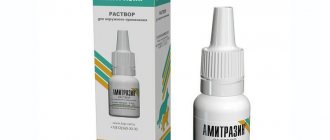Ringer's solution is a very popular veterinary drug that is used if necessary to correct the electrolyte balance of the cat's body. This medicine stops the intoxication and replenishes fluid levels.
Basically, Ringer's solution for cats is used for various conditions of shock, collapse, acute poisoning, peritonitis, ongoing intestinal infections, intestinal obstruction, burns and other painful conditions of the body, which are characterized by large loss of fluid.
Pharmacology
In accordance with the instructions, the drug is able to stop the course of intoxication, restore water and electrolyte balance in case of shock or heavy blood loss.
In addition, Ringer's solution is able to replenish the volume of blood circulating throughout the body.
However, due to the fact that the drug quite quickly enters the space outside the blood vessels, the effect of replenishing blood volume is extremely short-lived, lasting no more than forty minutes. Due to the fact that the blood volume increases and its composition becomes more diluted, the concentration of toxic and poisonous substances significantly decreases, which helps to stop intoxication.
Ringer-Locke solution: indications for use in cats
The drug is a clear liquid identical to blood plasma in the composition of electrolytes. The medicine is used to treat diseases characterized by tissue loss of fluid, salts, and intoxication. Ringer-Locke solution is used for detoxification, restoring water-salt balance, washing eyes or wounds.
The drug is indicated for use in the following cases:
- large-scale blood loss;
- intoxication;
- dehydration due to vomiting and diarrhea;
- poisoning, insect bites;
- constipation and intestinal obstruction;
- conjunctivitis;
- rehabilitation after surgery.
Ringer's Locke solution for animals: when is it contraindicated?
The use of the drug is contraindicated in situations where there is no dehydration, but there is swelling. The idea of administering Ringer Locke solution in such a situation would not occur to a veterinarian, but a desperate cat owner may commit an ill-considered act.
So, the use of Ringer-Locke solution is contraindicated in the following situations:
- pulmonary or cerebral edema;
- chronic renal failure, in which the outflow of urine becomes difficult;
- urolithiasis, cystitis;
- heart failure.
How does Ringer-Locke solution work on a cat's body?
Ringer-Locke solution contains glucose, which reacts chemically with toxic substances, converting them into safe compounds. To remove toxins from the body, it is not water that is needed, but salts - potassium, sodium and calcium chlorides. The concentration of electrolytes in Ringer Locke solution is the same as in the blood of mammals.
The drug saves a cat’s life when blood thickening occurs due to loss of fluid. If electrolytes are not introduced, red blood cells will stick together, which will lead to the formation of blood clots.
Contraindications, side effects
It is important to understand that this drug should not be used in cases of any swelling, as it will only stimulate the accumulation of fluid in the tissues and cavities of the body. This especially applies to cases of cerebral and pulmonary edema, since the use of Ringer-Locke in these pathologies can even lead to death. In addition, its use is not permitted for anuria, oliguria, or severe kidney disease. The fact is that in these cases the solution can contribute to the development of severe edema and similar pathologies. In rare cases, allergic reactions are possible.
It is also not recommended to pour liters of this product if the cat has been diagnosed with heart failure. Again, in this case there is a very high probability of the same edema forming, since the heart muscle simply will not be able to cope with the increased volume of fluid in the bloodstream. Ringer-Locke solution should be used with extreme caution in case of acidosis, hypovolemia, and similar pathologies. In the first case, the composition causes a sharp change in the pH of the blood plasma, in the other - a sharp increase in its volume. All this can have an extremely negative impact on the health of the animal.
Compound
The mixture contains active ingredients: potassium, calcium and sodium salts. Potassium chloride Intracellular ion. Stimulates the release of adrenaline from the adrenal glands. An increase in the concentration of the element is accompanied by a decrease in excitability and conductivity. Large doses have a depressing effect on the cardiac cycle, reducing its frequency. Increases adrenaline production and synthesizes ATP. With a deficiency, the brain is poorly supplied and concentration decreases. It is quickly absorbed and intensively excreted by the kidneys. It is used for problems with blood circulation, diarrhea, toxic infections, and after surgery. Calcium chloride Helps in the transmission of nerve impulses, regulates the secretion of hormones, promotes blood clotting. An essential participant in the formation of bone tissue. Disturbs transcapillary metabolism, eliminates allergic reactions and inflammatory processes. Used for myocardial dysfunction, bleeding, toxic liver damage, poisoning. Used during and after surgery. Sodium chloride Provides osmotic stability, regulates the supply and removal of water in the cell. Reducing the amount of sodium and chlorine leads to changes in the functioning of the nervous system. With a deficiency, the work of the myocardium and smooth muscles changes. The water structure increases blood volume and promotes ionic stability. Improves blood circulation, causes antitoxic effect. Acts as a solvent for other drugs. Used to increase blood pressure during bleeding. Plays a supporting role in cerebral edema. Neutralizes silver nitrate poisons.
Due to the complex content of macroelements, Ringer's solution is indicated for pathological conditions of any etiology.
Ringer-Locke solution: instructions for use and dosage
The veterinary drug is produced in glass bottles of 100 ml. For medical purposes, containers of a different size can be used. The shelf life of the medicine is 2 years from the date of manufacture indicated on the label. Must be stored at room temperature. The drug is intended for intravenous or subcutaneous injection.
Be sure to read:
Names of antibiotics for cats: indications and contraindications for wounds and infections
The veterinarian prefers to put in a drip, since the greatest therapeutic effect is achieved with a uniform and gradual flow of glucose and salts into the blood. The maximum daily dose is 150 ml, single dose - 50 ml. If a visit to the clinic or the veterinarian’s arrival at home is delayed, the cat’s owner can provide independent assistance to the pet. Intramuscular administration will do neither harm nor benefit.
Ringer's solution is drawn into a large syringe and injected subcutaneously into several places. Bumps form, but the body absorbs the liquid before our eyes. Up to 50 ml of liquid can be injected into your pet once. Dosage by weight has not been developed, and cases of overdose are unknown. Therefore, the kitten is given 5-10 ml of liquid at a time.
Ringer's solution, which does not contain glucose, has a similar effect. Therefore, the drug does not have a detoxifying effect. In emergency situations, use a saline solution that contains only sodium chloride. The medical products Hemodez and Poliglyukin have a similar effect, but they should not be used without the permission of a veterinarian.
How to use the medicine correctly?
A single dosage of the drug depends on the size and age of the animal, the degree and duration of the disease. It can range from 40 ml of solution to 50 ml per day, in each specific case it will be determined by a veterinary specialist.
Contraindications to the use of Ringer-Locke solution should also be taken into account. This is, first of all, swelling. With such a pathology, the drug will stimulate the accumulation of fluid in cavities and tissues, especially if we are talking about edema of the lungs and brain - in this case, the solution can lead to the death of the animal.
The use of the drug for oliguria, anuria, and kidney disease in cats is prohibited. In these conditions, the healing liquid contributes to the occurrence of severe swelling and allergic reactions.
It is not recommended to use this remedy in large doses if your pet has been diagnosed with heart failure. Again, the likelihood of edema increases because the heart muscle will not be able to cope with the increased volume of fluid in the bloodstream.
The medicine is used with caution in cases of acidosis, hypovolemia, since a sharp change in blood pH or an increase in its volume is possible.
In this article you can read the instructions for use of the drug Ringer Locke
. Reviews of site visitors - consumers of this medicine, as well as the opinions of specialist doctors on the use of Ringer's solution in their practice are presented. We kindly ask you to actively add your reviews about the drug: whether the medicine helped or did not help get rid of the disease, what complications and side effects were observed, perhaps not stated by the manufacturer in the annotation. Analogues of Ringer's Locke solution in the presence of existing structural analogues. Use for the treatment of alkalosis and correction of water and electrolyte balance in adults, children, as well as during pregnancy and lactation. Composition of the drug.
Ringer's solution
- a rehydrating agent, has a detoxifying effect, stabilizes the water and electrolyte composition of the blood. When used as a means of replenishing the volume of circulating blood, due to the rapid exit from the bloodstream into the extravasal space, the effect lasts for only 30-40 minutes (and therefore the solution is suitable only for short-term replenishment of the volume of circulating blood).
Compound
Sodium chloride + Calcium chloride + Potassium chloride + excipients.
Indications
- as a plasma replacement agent in the absence of the need to replace red blood cells, incl. for shock, collapse, burns, frostbite, prolonged vomiting, diarrhea;
- for correction of water and electrolyte balance in acute generalized peritonitis and intestinal obstruction, intestinal fistula;
- dehydration of various etiologies;
- metabolic alkalosis accompanied by fluid loss.
Release forms
Solution for infusion in a polymer container or infusion bag 100 ml, 200 ml, 250 ml, 400 ml, 500 ml and 1000 ml.
Instructions for use and method of use
Intravenous drip at a rate of 60-80 drops/min or stream.
The daily dose for adults is 5-20 ml/kg, if necessary, can be increased to 30-50 ml/kg.
The daily dose for children is 5-10 ml/kg, the rate of administration is 30-60 drops/min; for shock dehydration, 20-30 ml/kg is initially administered.
The course of treatment is 3-5 days.
Side effect
- overhydration;
- hypokalemia;
- allergic reactions.
Contraindications
- hypernatremia;
- hyperchloremia;
- acidosis;
- chronic heart failure;
- pulmonary edema;
- cerebral edema;
- chronic renal failure;
- hypervolemia;
- concomitant therapy with glucocorticosteroids;
- hypersensitivity to the components of the drug.
Use during pregnancy and breastfeeding
During pregnancy, it is used in cases where the expected benefit to the mother outweighs the possible risk to the fetus.
You should refrain from breastfeeding while using the drug due to the lack of relevant clinical data.
special instructions
With long-term use, monitoring of plasma electrolyte concentrations and daily diuresis is necessary.
In the case of rapid administration of a large volume, it is necessary to monitor the acid-base status and electrolyte levels. A change in blood pH (acidification) leads to a redistribution of potassium ions (a decrease in pH leads to an increase in the content of potassium ions in the blood serum).
Only undamaged vials with a clear solution can be used.
Drug interactions
It is possible to increase sodium retention in the body while taking the following medications: NSAIDs,
androgens, anabolic hormones, estrogens, corticotropin, mineralocorticoids, vasodilators or ganglion blockers.
When taken with potassium-sparing diuretics, ACE inhibitors and potassium supplements, the risk of developing hyperkalemia increases.
In combination with cardiac glycosides, the likelihood of their toxic effects increases.
Analogues of the drug Ringer Locke
Ringer's solution has no structural analogues for the active substance.
Analogues by pharmacological group (regulators of water and electrolyte balance in combinations):
- Acesol;
- Disol;
- Yonosteril;
- Quintasol;
- Methuselum;
- Sodium fumarate is complex;
- Neohemodesis;
- Plasma-Lit 148 aqueous solution;
- Plasma-Lit 148 with 5% Glucose;
- Hartmann's solution;
- Regidron;
- Ringer lactate;
- Ringer Lactate Viaflo;
- Ringer's acetate;
- Ringer's lactate with magnesium;
- Complex solution of sodium lactate Bieffe (Ringer's lactate solution);
- Sorbilact;
- Compound sodium lactate;
- Trisol;
- Hlosol.
If there are no analogues of the drug for the active substance, you can follow the links below to the diseases for which the corresponding drug helps, and look at the available analogues for the therapeutic effect.
Ukraine
ATS code: В05В В01
Farm group:
Release form: Liquid dosage forms. Solution for infusion.
Composition and release form of the drug
The instructions for use indicate the following components:
- sodium chloride 0.9% - has plasma-replacing properties;
- sodium bicarbonate – restores sodium levels in the blood;
- potassium chloride – compensates for the lack of potassium in the body due to pathological fluid loss;
- glucose is a restorative agent, increases diuresis;
- water.
The chemical composition of the solution is similar to animal blood plasma. Release form: glass bottles of 200 and 400 ml or soft bags of 500 ml, used for droppers. The liquid is colorless and transparent.
What is it, in what cases is it used?
In general, there is nothing complicated in this drug. It contains sodium chloride 0.9%, calcium chloride, sodium bicarbonate, glucose and water. The properties of this solution are almost identical to those of blood plasma. It is completely safe for animals, has no toxic effect when used in any dose, and no cases of overdose have been identified.
Because of this, this remedy can be used for massive blood loss, dehydration, and other pathologies. The solution is indispensable in the treatment of intoxications, as it allows you to neutralize a number of toxins. In particular, calcium chloride converts many heavy metals into an insoluble state, preventing their negative effects on the body. The important thing is that it does not cause any irritation to surrounding tissues. What does it mean?
It's simple. In dehydrated cats (especially kittens), it is virtually impossible to find constricted veins. Large amounts of solution have to be injected directly under the skin. Since Ringer’s properties are more similar to blood plasma than a simple saline solution, it is absorbed faster and saturates the body with the necessary amount of fluid. The only thing you must always remember is that this composition does not need to dissolve medications! The calcium chloride and sodium bicarbonate it contains can react with the components of the medicine, which in some cases can end extremely sadly. So this use is unacceptable.
Interaction
Caution should be used when combining the medicine with certain drugs, such as NSAIDs.
, or
anabolic steroids
.
Cases of various types of intoxication in domestic and farm animals are, unfortunately, not uncommon. To alleviate the condition of patients in veterinary clinics in case of poisoning, a special type of drugs is used - designed to restore electrolyte levels. One such medicine is Ringer's solution. Instructions for using this particular product, which has earned good reviews from consumers, will be discussed below in the article.
In veterinary medicine, this remedy is used quite often. This solution can be used for cats, dogs, rabbits and other animals.

